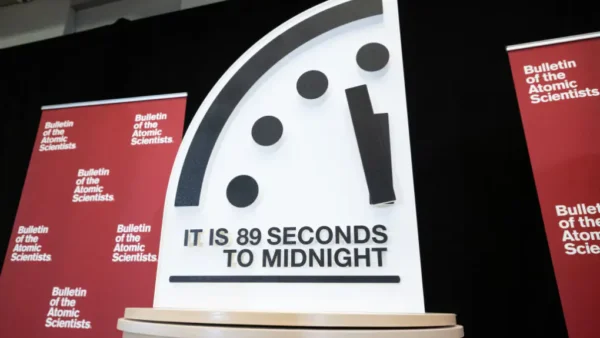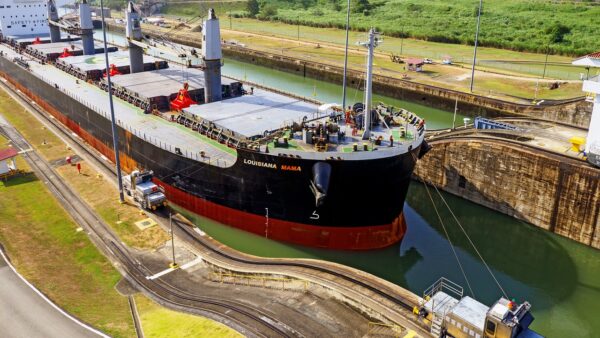War Coming to South America
What Happens in Venezuela After Maduro’s Referendum on Guyana
The referendum on annexing the Essequibo Region called for by President Maduro was approved in Venezuela. However, the disputed region constitutes 2/3 of the territory of Guyana. Now what will happen? In the meantime, Brazil is moving troops and the UN Court of Justice is seeking dialogue.
It was widely expected and has been confirmed: Venezuela’s referendum to claim sovereignty over the Essequibo Region has been successful. This region constitutes 2/3 of the territory of Guyana and is rich in oil and mining resources. It is an area that has been at the center of a dispute lasting almost 200 years: in brief, Venezuela claims that the region was taken from it in the past and wants to annex it, while Guyana obviously opposes it.
Venezuelan President Nicolas Maduro expressed great satisfaction with the results of the referendum, which however only has a consultative value and is not binding. According to the National Electoral Council, 10.5 million votes out of 20.7 million eligible people were cast, with 95% in favor. However, other sources speak of a minimum turnout, inflated by the authorities. In fact, there were 5 questions to answer and the certifying body spoke of votes expressed and not of voters. Therefore, only 2 million citizens may have actually participated in the vote.
Whatever the truth, the result does not change: President Maduro has obtained a potential domestic political mandate to claim sovereignty over the Essequibo Region. Venezuelans were specifically asked if they wanted to make the territory a state of the federal republic, called Essequibo, guaranteeing Venezuelan citizenship to residents of the area and refusing UN mediation on the issue.
The vote expressed in the referendum has increased tensions between Venezuela and other countries in the area: first and foremost Guyana, which is directly involved, but also Brazil, which borders both countries and has already increased its military presence along borders, fearing a possible escalation and the beginning of an armed conflict.
Now that we have briefly framed the results and effects of the consultation, let’s answer two key questions: why did Maduro hold the referendum now? And is there a risk of war? On this occasion we interviewed some experts, in particular Professor Graziano Palamara from the University of Salerno, Professor Alessandro Guida from the University of Naples L’Orientale, and researcher Dr. Elia Morelli from the University of Pisa and geopolitical analyst.
Why did Maduro hold the referendum now?
First of all, we must clarify that the referendum is mostly important for Venezuela’s domestic politics. It is probably an attempt by the Maduro regime to gain consensus on a long-standing nationalist issue in order to strengthen itself ahead of the 2024 presidential elections. In recent years, Venezuela has been experiencing an unprecedented economic and social crisis, with the highest inflation in the world and 7.7 million people emigrating abroad in the last ten years. Through the referendum, Maduro is thus trying to distract the population from internal difficulties, reinvigorate national pride, and rally the people around an initiative of which he is the primary supporter.
Furthermore, in media terms, the referendum serves abroad to politically legitimize Venezuela’s claims to the Essequibo Region and, more broadly, the figure and work of the president, while delegitimizing the UN and the International Court of Justice. In 2018, Guyana officially asked the UN judicial body to declare legitimate its current borders, in order to make them definitive. However, the Court’s decision will take a few years. With the referendum, Venezuela is anticipating that it will not consider the UN’s opinion binding.
Finally, the referendum could represent the political support for a military intervention in the Essequibo Region and an attempt to take possession of it. But is a war of annexation really possible?
Is war possible in South America?
There are no certainties, but at this stage, the possibility of a war breaking out between Venezuela and Guyana is remote. While there have historically been conflicts in South America caused by territorial claims and the desire to modify borders (mainly due to the legacy of European colonization), the area in question has always been peaceful.
Furthermore, an attack would open up a regional crisis that Venezuela would struggle to manage, without considering that it is unclear which outside powers might intervene in defense of Guyana: Brazil’s President Lula seems inclined to potentially defend its borders; the United Kingdom could feel called into action as the former colonizing country (Guyana is the only South American country where English is spoken). Guyana is also a Commonwealth country, the organization that brings together almost all countries that were once part of the British Empire. Finally, there are the United States, hostile to Maduro’s leadership but currently focused on the Russian-Ukrainian war, the clash between Israel and Hamas, and global competition with China.
Even distracted by other fronts, the US could decide to intervene in defense of Guyana, first of all to follow up on the so-called Monroe Doctrine, an ideology that supports the US maintaining supremacy in the Americas and intervening first hand to quell any conflicts between American countries (preventing European states from doing so). Furthermore, US intervention could help weaken Maduro’s regime and instead support the interests of ExxonMobil, the state oil company that discovered oil off Guyana’s Essequibo coast in 2015.
As can be seen, an attack by Venezuela would have uncertain outcomes and therefore does not seem very likely at the moment. However, if Maduro were to decide to attack, no one intervened in defense of Guyana, and the assault succeeded, the annexation could certainly breathe new life into Venezuela’s economy by distracting public opinion from its own conditions and focusing it on a strongly felt national issue. It would also strengthen the president’s leadership and the regime.
A military option, on the other hand, could be feasible in concrete terms. Venezuela has recently carried out military exercises simulating amphibious assaults and has already mobilized some of its troops, moving them closer to the border with Guyana. In absolute terms, it would have the necessary armed forces to overwhelm Guyana’s much more modest ones.
Operationally, it would involve invading the region by exploiting river routes through the rainforest and conquering the coastline and most populated areas by sea. Especially taking the city of Georgetown could allow establishing an air bridge to support any invasion…

Originally posted 2023-12-18 11:59:09.




